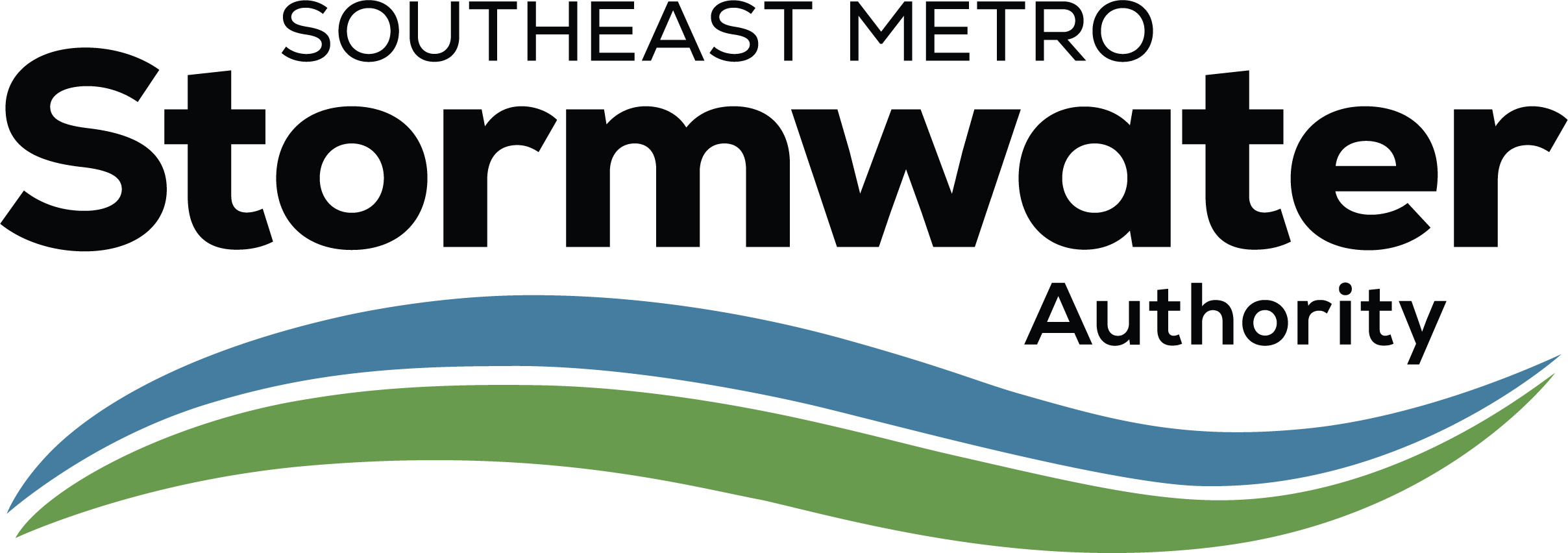Floodplain Permitting & Templates
If you need additional guidance, please reach out on our contact us page and one of our floodplain staff will get back to you shortly.
SEMSWA Jurisdiction: Within the City of Centennial and unincorporated Arapahoe County.
What activities need a Floodplain Development Permit (FPDP)? FPDPs are required for all activities in the floodplain.
- FEMA defines development as “any man-made change to improved or un-improved real estate, including but not limited to buildings or other structures, mining, dredging, filling, grading, paving, excavation or drilling operations, or storage of equipment and materials.”
SEMSWA’s Floodplain Program issues Floodplain Development Permits (FPDPs) for projects in and around the 100-year floodplain within our service area. A FPDP must be approved before other local permits (e.g., building, street cut, right-of-way use, GESC, public improvements) can be issued and prior to any other development, use, or change of use of land located in the Floodplain.
All activities, regardless of impact, need to be permitted. Even when it is apparent that there are no adverse impacts to the floodplain, a permit is required for administrative purposes to ensure that SEMSWA is aware of the activities within the floodplain and that they have been evaluated for compliance with Centennial and/or Arapahoe County requirements.
Centennial and Arapahoe County Floodplain Regulations and Permitting Requirements follow Federal and State criteria and are authorized through both the City Land Development Code and the County Land Development Code and are described in detail in the SEMSWA Stormwater Management Manual and the Arapahoe County Stormwater Management Manual.
Hydraulic modeling may be required to determine if the proposed project will cause an impact to the floodplain.
- No impact means 0.00 ft rise in the Base Flood Elevation (BFE) and no additional width added to the floodplain.
- Impact is defined as any rise in the BFE and/or additional land added to the width of the floodplain.
- Floodplain Development Permit (FPDP)
- No Impact FPDP for no impact projects - An Engineer’s Certification of No Impact is required for administrative purposes for FPDP with no floodplain impact. In some cases, hydraulic modeling could be required.
- Standard FPDP for projects with impacts to a floodplain
- If the impacts will occur to a FEMA floodplain, a Conditional Letter of Map Revision (CLOMR) must be submitted and approved by FEMA prior to approval of the FPDP.
- If the impacts will occur to a local floodplain, i.e., a FHAD floodplain or an area of approximately mapped flood hazard, a Floodplain Modification Study (FMS) must be submitted to and approved by SEMSWA prior to approval of the FPDP. The FMS is a project-specific study on floodplain impacts.
- Annual Floodplain Development Permit – special permit issued for a calendar year specifically for Utility Companies or Parks and Recreation Districts who have various projects within the floodplain (see annual permits page)
If you are concerned about buildings, sheds, or fences you see being built near waterways and known floodplains, please reach out to SEMSWA.
- Call SEMSWA at 303-858-8844
- Contact us using the “Contact Us / Report a Problem”
| FPDP with no impacts | FPDP with impacts to FHAD floodplain | FPDP with impacts to FEMA floodplain - CLOMR | Annual FPDP |
|---|---|---|---|
| FPDP Application (City or County- see below) | FPDP Application (City or County- see below) | FPDP Application (City or County- see below) | FPDP Application (City or County- see below) |
| City of Centennial Floodplain Development Permit | City of Centennial Floodplain Development Permit | City of Centennial Floodplain Development Permit | Available to Utilities and Parks and Rec districts |
| Arapahoe County Floodplain Development Permit | Arapahoe County Floodplain Development Permit | Arapahoe County Floodplain Development Permit | Available to Utilities and Parks and Rec districts |
| Engineer's Certification of No Impact Two template choices (see below) | Floodplain Modification Study | CLOMR report | |
| A) Detailed Floodplain (Zone AE with BFEs) | Engineers Floodplain Certification Statement | Engineers Floodplain Certification Statement | |
| B) Local Floodplain | |||
| Hydraulic Modeling | Hydraulic Modeling | ||
| Hydraulic Comparison Table | Hydraulic Comparison Table | ||
| FEMA MT-2 forms |
Arapahoe County Floodplain Development Permit Application
- Arapahoe County Floodplain Development Permit – To be used for all proposed projects located in the floodplain within Unincorporated Arapahoe County
City of Centennial Floodplain Development Permit Application
- City of Centennial Floodplain Development Permit – To be used for all proposed projects located in the floodplain within the City of Centennial
No Impact Letter Templates
- Engineer’s Certification of No Impact Template (FEMA, PMR, or FHAD floodplains)
- Engineer’s Certification of No Impact (Approximate Floodplain) Template
CLOMR/LOMR templates
- Floodplain Modification Study and Conditional Letter of Map Revision (CLOMR) Checklist
- Letter of Map Revision (LOMR) No CLOMR Checklist
- LOMR Following CLOMR Checklist
- LOMR As-Built Drawing Checklist
- Engineers Floodplain Certification Statement
- Hydraulic Comparison Table
FEMA MT-1 and MT-2 forms
- MT-1: The FEMA forms for individual property owners (LOMA, LOMR-F) are located at: https://www.fema.gov/flood-maps/change-your-flood-zone/paper-application-forms/mt-1
- MT-2: The FEMA forms for larger Capital Improvement projects (CLOMR/LOMR) are located at: https://www.fema.gov/flood-maps/change-your-flood-zone/paper-application-forms/mt-2
